
For those that lived through it this would probably be the last major anniversary of one of the most significant events of their lives.
On this August 14th this author checked the major television networks listings to look for a primetime special about the end of the war, but found none.
I then moved my search to the usually reliable History Channel, but they were running a marathon of their show Ancient Aliens.
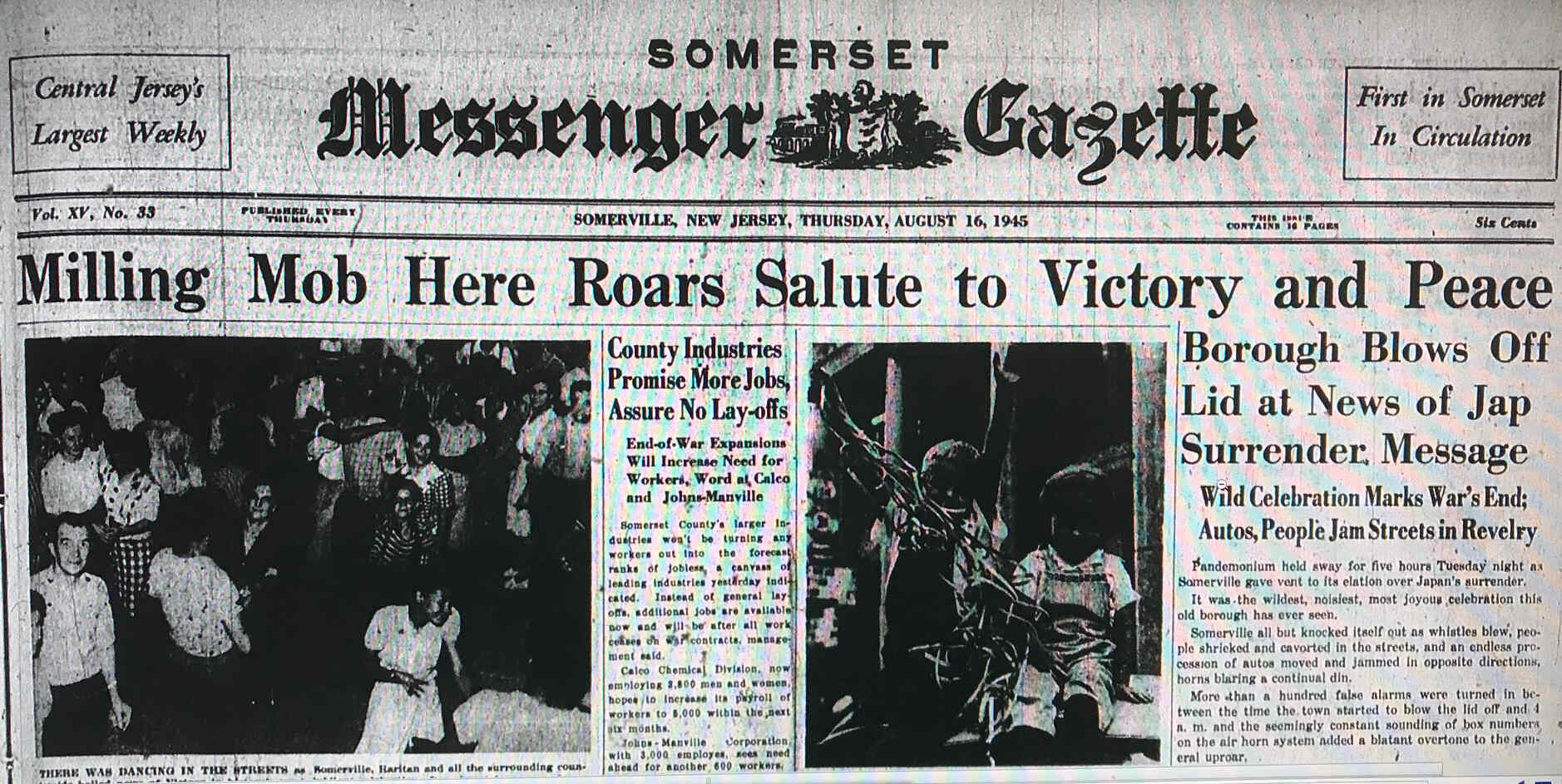
We fought this war against two enemies, (Nazi) Germany and (Imperial) Japan.
While the global conflict began in September of 1939, when Germany invaded Poland, the United States managed to remain out of the war until December 7th 1941, when the Japanese bombed Pearl Harbor.
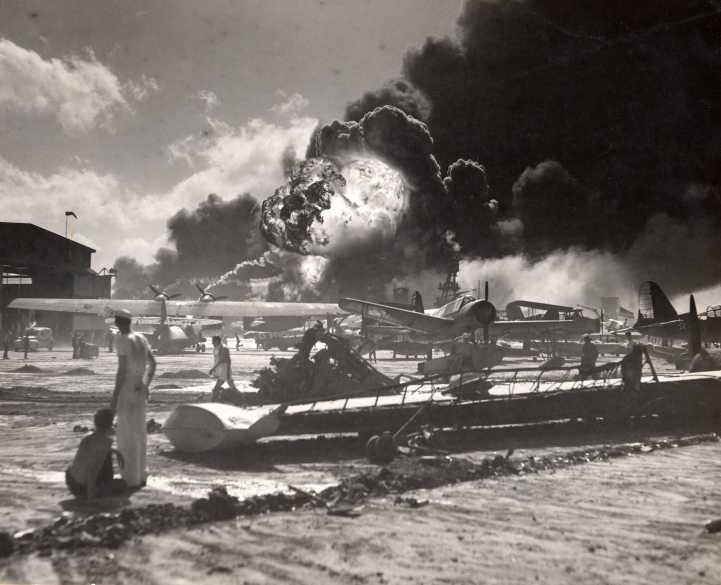
We would rebound to achieve victories in mid-1942. First, at sea, at Midway, and then on land, at Guadalcanal.
With help from our Allies, Britain and Russia, by May of 1945 Germany was in ruins and they surrendered. That day would be given the name V-E Day for Victory in Europe.
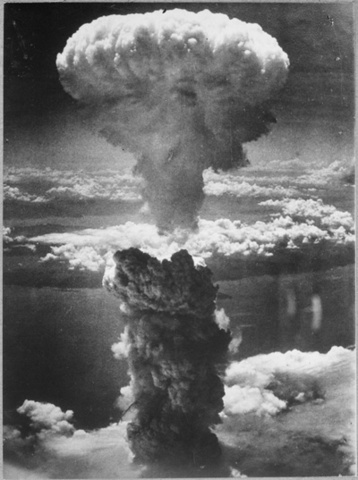
It would take a complete annihilation or an overwhelming show of force before the Japanese would submit to the humiliation of surrendering. The U.S. had planned to invade Japan. The projected outlook was that the invasion would cost half a million lives on both sides. The people on the home front and U.S. soldiers on the battlefront were well aware of this, thus very worried. Over four hundred thousand U.S. sons, husbands, and brothers had already been lost and it was feared that those numbers could easily double.
But as it turned out the invasion of Japan did not need to take place as a new devastating weapon, the atomic bomb, was dropped on the Japanese cities Hiroshima and Nagasaki. It resulted in the Japanese Supreme Council to finally accept surrender.

At 7 PM, President Harry Truman called reporters into his office. He announced that Japan had at last agreed to the terms given to them which were unconditional surrender. While the announcement was recorded on film for historical purposes (you can see it on YouTube today), his announcement was not broadcast live over the radio.
The reporters in the room quickly exited to make calls to their news organizations to tell them that the war was over. All the radio stations immediately interrupted their scheduled programming to announce the end of the war. It set off the biggest spontaneous celebration in United States history.
the press that the war is over.

The town of Raritan, who had lost 25 of their boys and sent over 900 into the fight, like all other towns, went to the streets to celebrate. And celebrate they did. At the time Raritan was holding its annual St. Rocco Celebration, so many people were already gathered outside.
A spontaneous parade was organized. People shouted and danced. It was a festive night that no one would never forget.
to celebrate the end of the war.
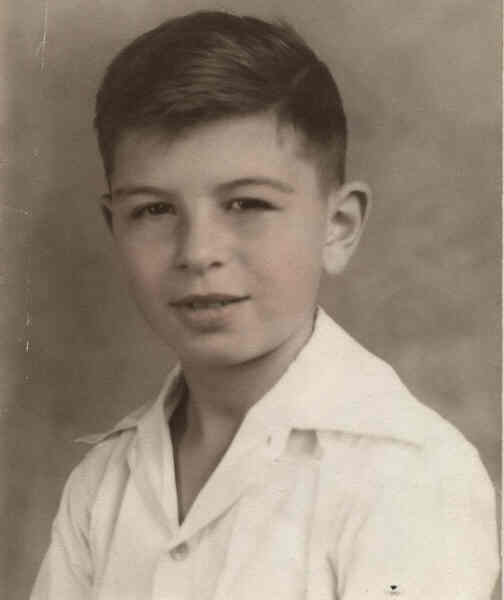
Peter Vitelli, then 8 years old, recalls that evening. He was at home with his family at 8 Lincoln St. when they heard the church bells ringing. Soon a neighbor stopped by the house informing them that the war had ended. Overjoyed, everyone went house-to-house hugging their friends, family and neighbors. He noticed radios were on in every household, as people were listening for the details. Quickly, Raritan residents filled the local churches to give their thanks that it was all over.
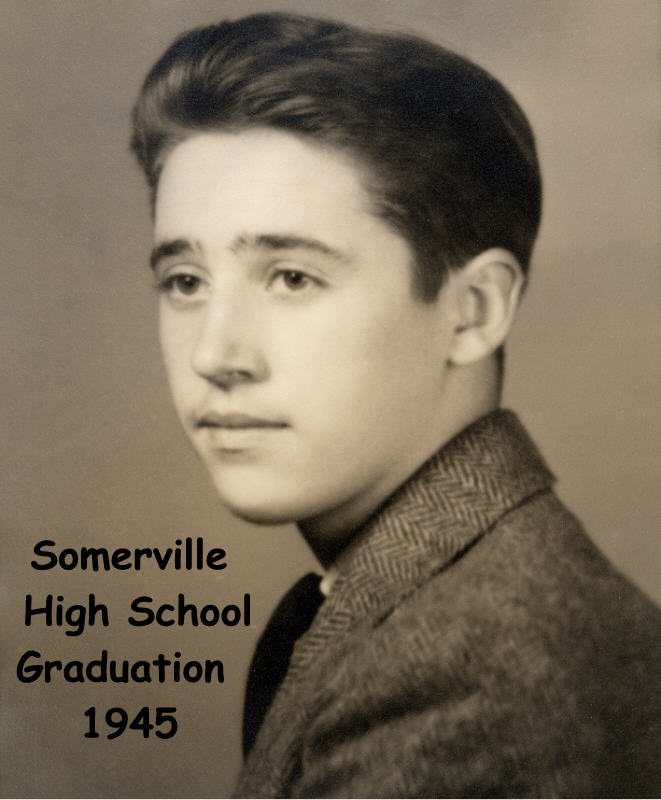
On the night of the fourteenth we had enough excitement to last for years. When it was officially announced that the Japanese had surrendered, Raritan with Somerville and Bound Brook, became an unbelievable riot-town. People were going wild, the streets were mobbed with cars and crowds, with every kind of noise you could think of. It was a night well worth remembering.
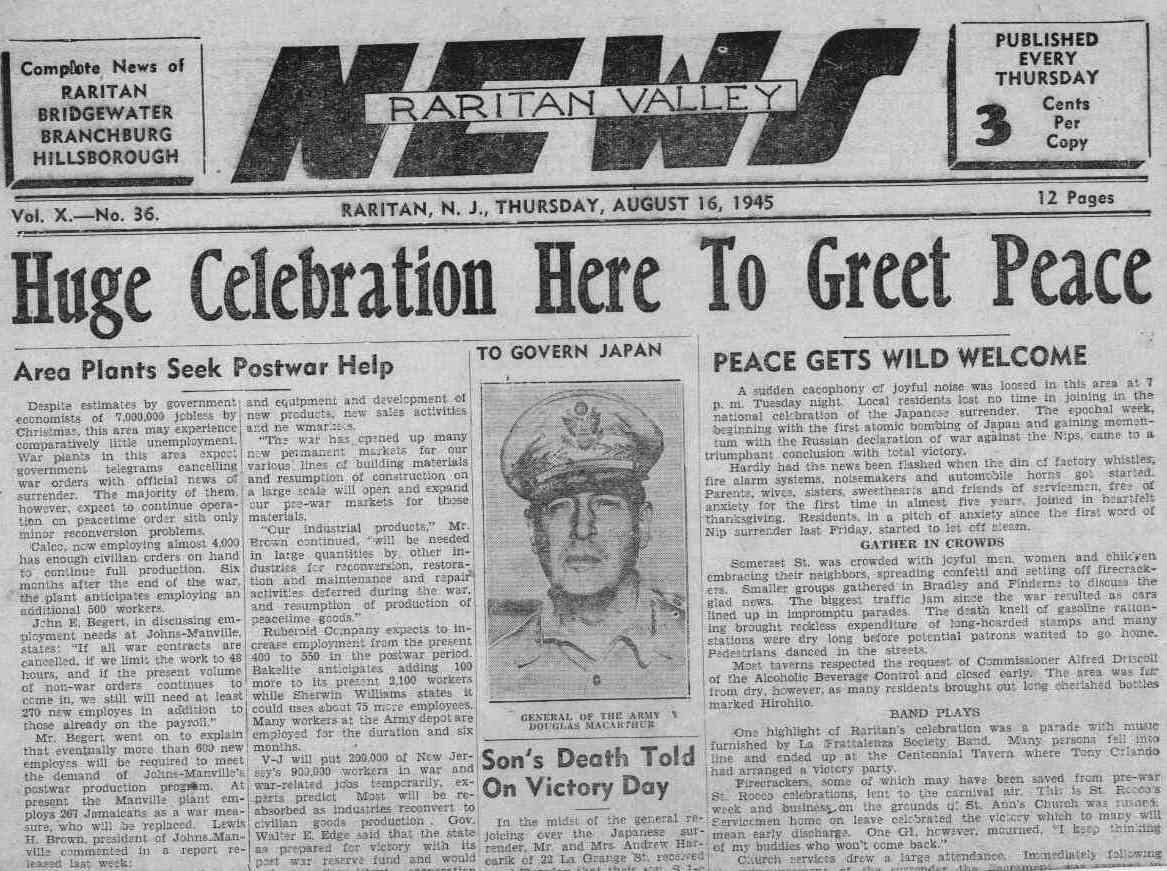
Al Capetta, who was just 5 years old, remembers how unique the night was. A parade had seemingly been formed out of nowhere. Everyone congregated in and around The Orlando Tavern. And Al remembers that it was the only time that he ever saw his father (Al Sr.) drunk. The family had to carry his dad to bed. Al Sr. had special reason to live it up that night, for he had two brothers overseas that would now return home safely.
The Somerset Messenger Gazette and The Courier News
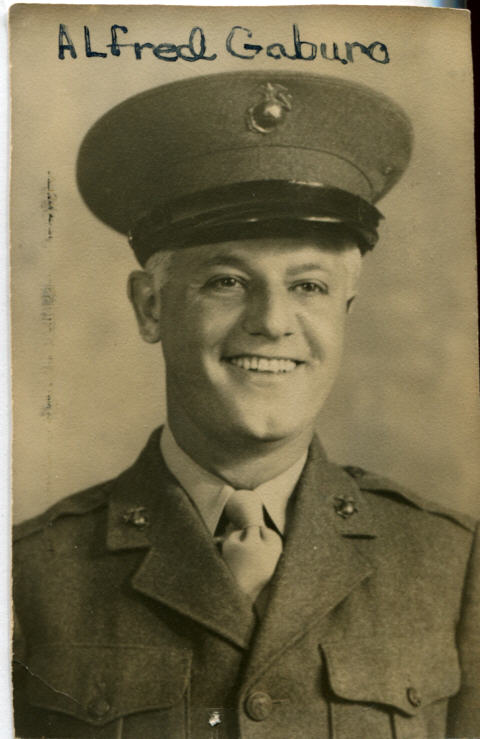
Al Gaburo of Raritan wrote an emotional letter about what the end of the war meant.
To us it meant that the horrors of war were a thing of the past. We received the news with a great deal of happiness. We celebrated by cheering and singing. Most of us went to the chapel and gave thanks to the Lord. It meant that we would no longer have to trust our luck. It meant we would soon be returned to our loved ones. From the reports that I get, I rather surmised that you boys had a hell of a good time upon hearing of the surrender of Japan.

Only in the small state of Rhode Island is there an official declaration for V-J Day. And Rhode Island has come under attack to drop the formal designation. Perhaps changing the name of the day from V-J Day to something that has a more general tone with no reference to Japan could revive this historic day.